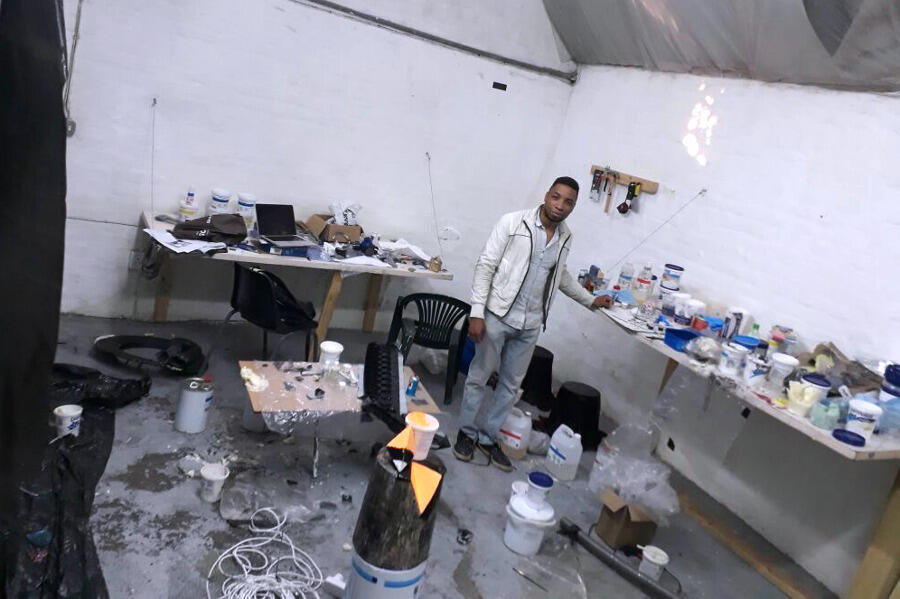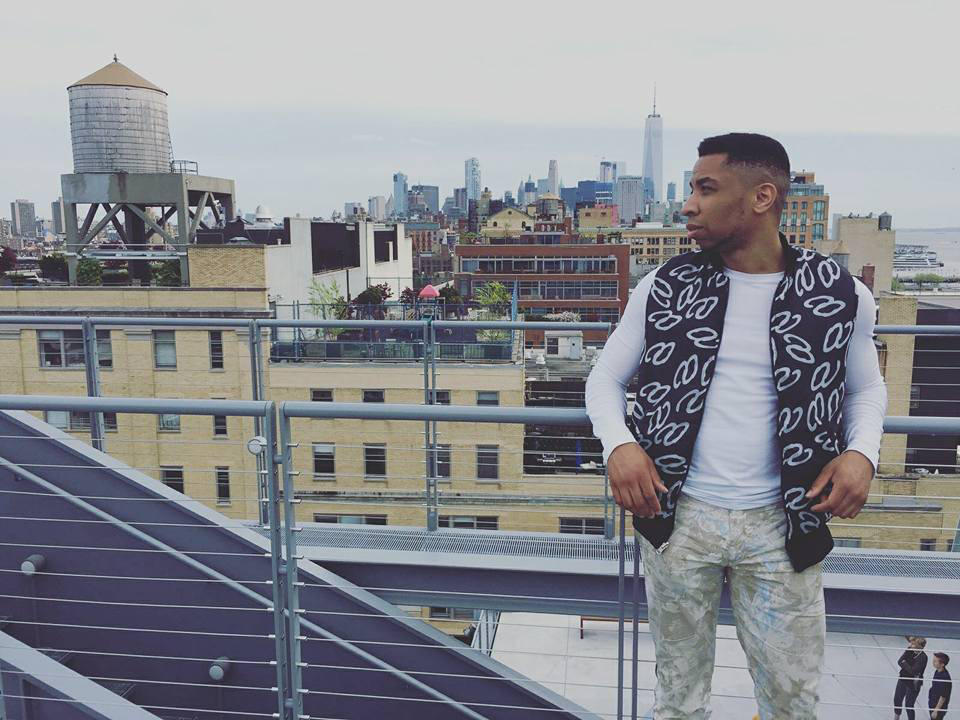
May 1, 2017
Fulbright scholar engages the politics and poetics of space and place in Johannesburg
Share this story
Levester Williams experienced racial profiling firsthand when police stopped him and a friend as they drove to Atlanta.
“They wanted to search the car, and they didn't find anything,” said Williams, who received his M.F.A. from the VCU School of the Arts in 2016. “They didn’t find any traffic violations … they didn’t find any drugs. And my friend was like, ‘Well, you all just pulled us over because we’re black.’”
It’s easy to be undermined in such a situation, where others have control, Williams said.
“What agency did I have within the space? What rights or what capacity do I have to exist within that space?” he wondered. That question stayed with him and influenced his application for a Fulbright Student Scholarship to study in Johannesburg.
Since November, Williams has been creating sculptures and installations that engage with the politics and poetics of space and place in Johannesburg during its ongoing transformation into a post-apartheid city. He is exploring themes such as identity, memory and community in Johannesburg’s urban landscape.
It’s like a paradigm shift happened within my life and within my artwork.
Williams had studied abroad in South Africa as an undergraduate student and was eager to return.
“It was a huge learning experience because I got to make contact and immerse myself in a different cultural environment, but also, at the same time, I learned so much about myself and my own culture,” he said. “It’s like a paradigm shift happened within my life and within my artwork.”
The Fulbright allowed him to come back to the country and conduct his own independent projects around its history.
“And 20 years since apartheid disbanded, I got to experience how citizens and government are trying to get beyond this part of history and how they themselves … are moving forward with that in mind. How this has formed these spaces,” Williams said.
Of particular interest to the artist is Constitutional Hill. Now a national monument and the seat of the Constitutional Court of South Africa, the site once housed the Old Fort, which imprisoned famous political activists such as Mahatma Gandhi and Nelson Mandela.
“So it was an infamous site and they took the constitutional court system — they wanted a site that has history and that was inclusive, and so the Old Fort had this history,” Williams said. “Post-apartheid, one of the things, they wanted to reconcile with the history, so they took this space of confinement to a space of freedom. Because the Constitutional Court is there, the basic rights are written in law at that site. So this space of confinement became a space of freedom.” The name of the Constitutional Court is written in each of the country’s 11 official languages, adding to the spirit of unity.
While exploring the city looking for buildings and sites that remember and reconcile the past, Williams noticed that the city is also rich with materials between those spaces.
“I’m finding a lot of the materials I’m using to build my sculptures from the streets,” he said. “I’m buying from street vendors. A lot of people sell fabrics here. And a lot of fabrics [have] this cultural pastiche.” He’s also found bamboo mats, and tiles from which he’s created molds to create other forms.
Williams says he’s using the language of the materials in his creation. But he’s also learning the language of the land.
“I’m learning more about the culture itself because I’m learning the language,” he said. “I’m seeing some of my biases. … To speak one language is to assume one culture and that language mediates our experiences.” For instance, Williams said, when you greet someone in English with “Hello,” it’s like a declaration. “It’s like me telling myself and telling you that I’m here,” he said. But the traditional greeting in Zulu translates to something akin to “I see you.”
“Recognizing your presence,” he said. “You have a presence and I recognize that as my greeting, whereas me saying ‘Hello’ is declaring my own presence. Things like that, I’m learning so much about the culture. Having my friend teaching me has been integral to my experience.”

Williams worked with the National Scholarship Office at VCU to apply for the Fulbright Student Scholarship. The office provides support for VCU alumni, graduate students and undergraduates who wish to compete for prestigious national and international scholarships. Interested students and alumni can contact the office at natlscholar@vcu.edu or 804-828-6868.
Subscribe to VCU News
Subscribe to VCU News at newsletter.vcu.edu and receive a selection of stories, videos, photos, news clips and event listings in your inbox.










